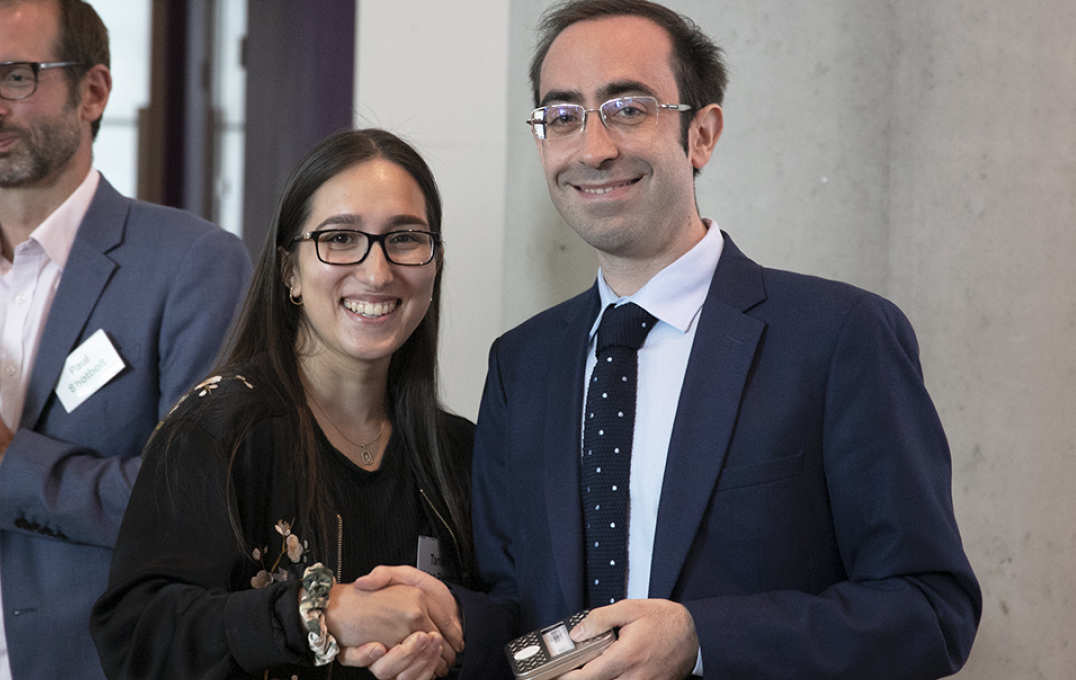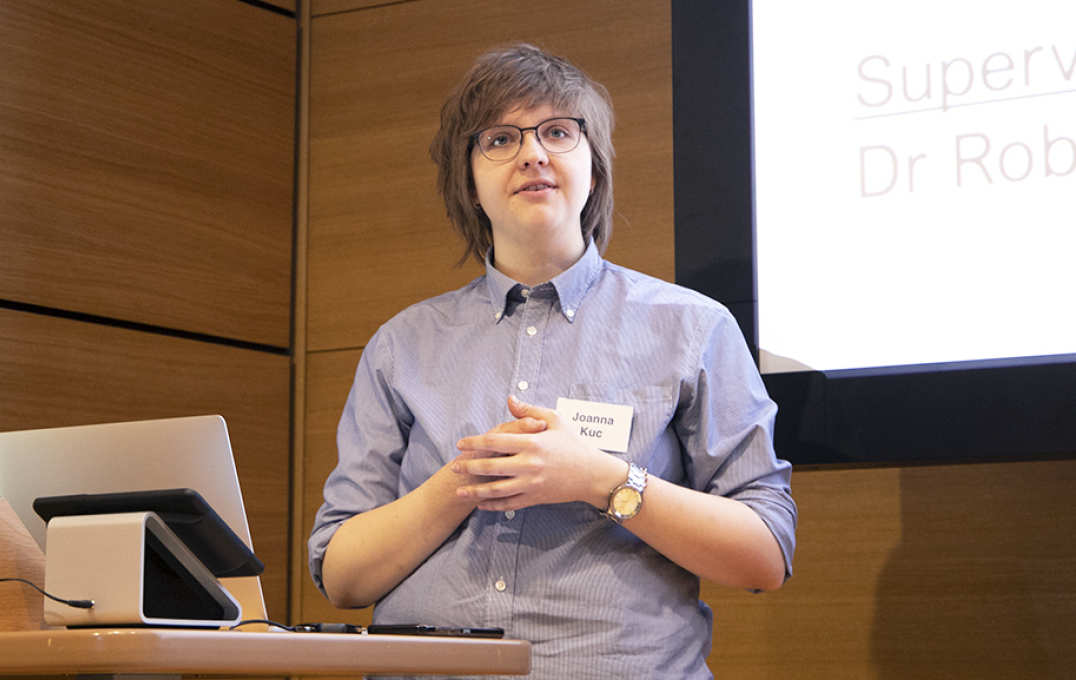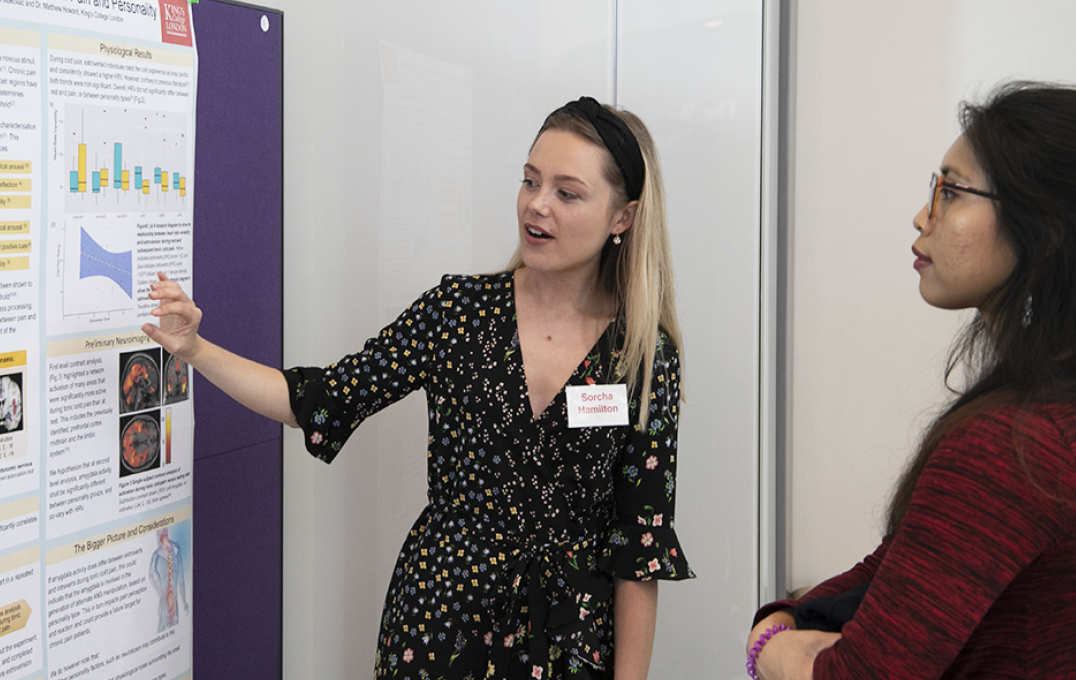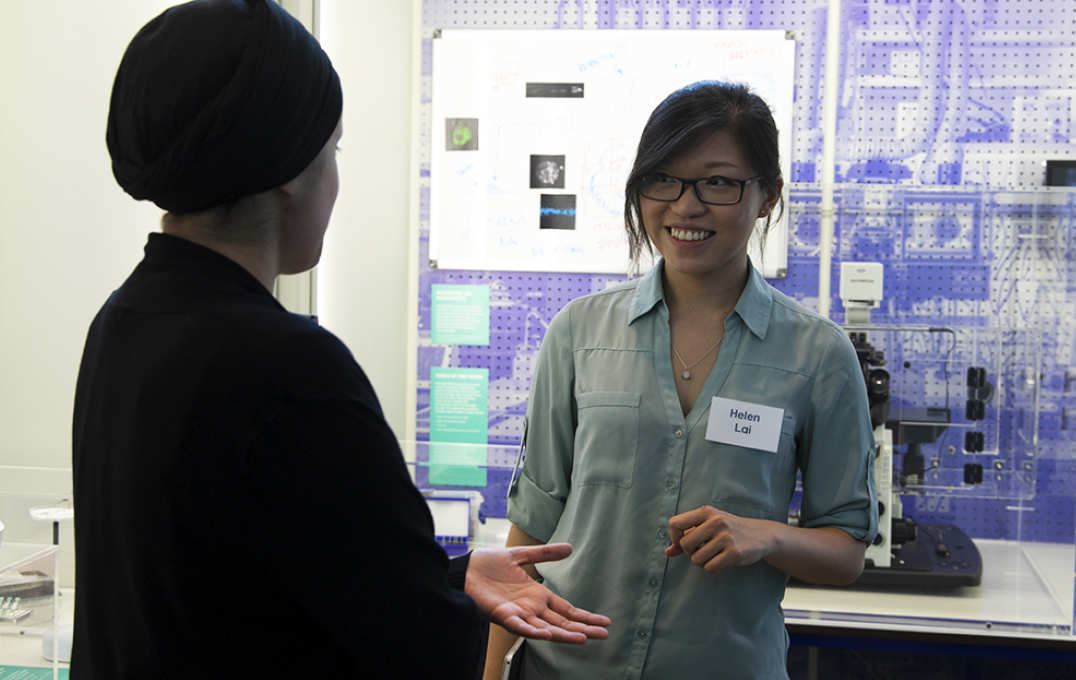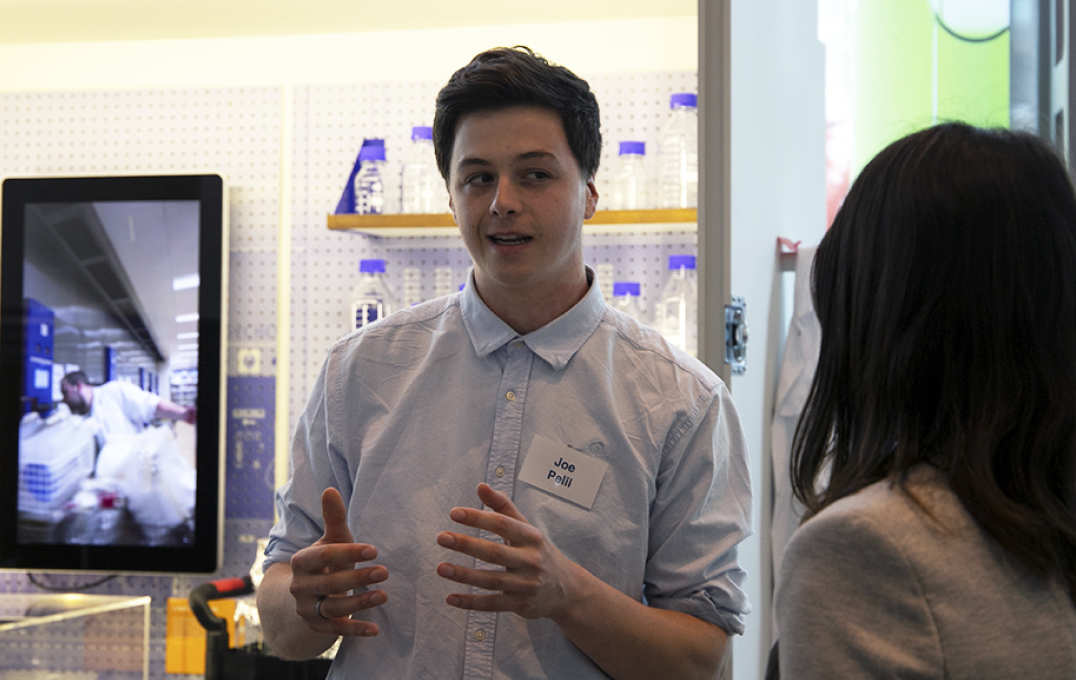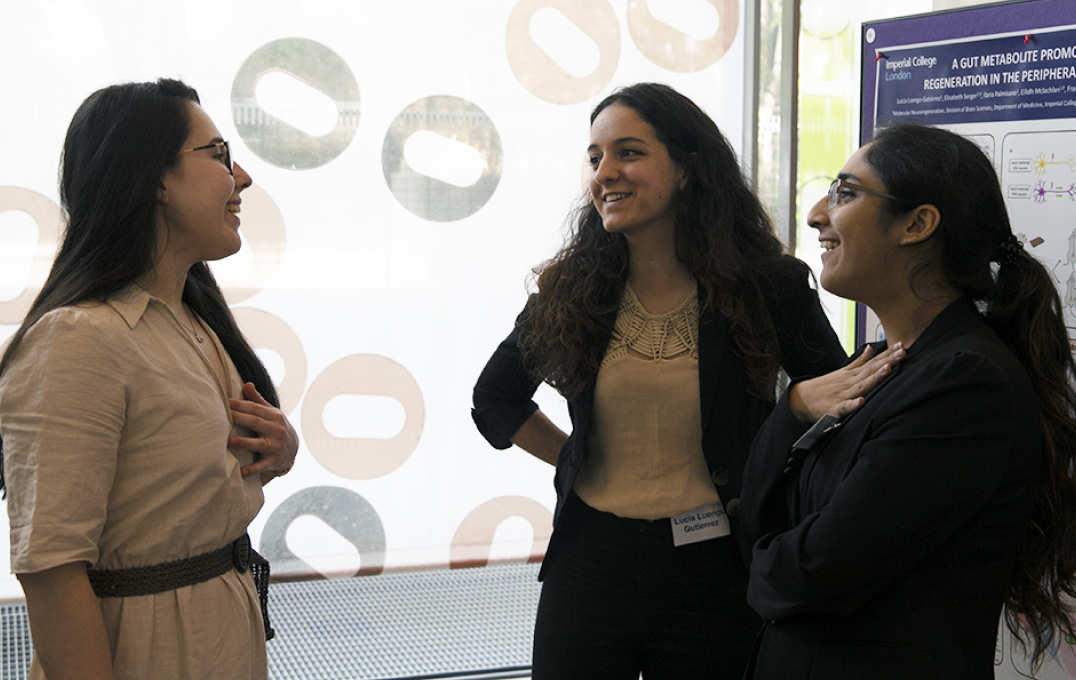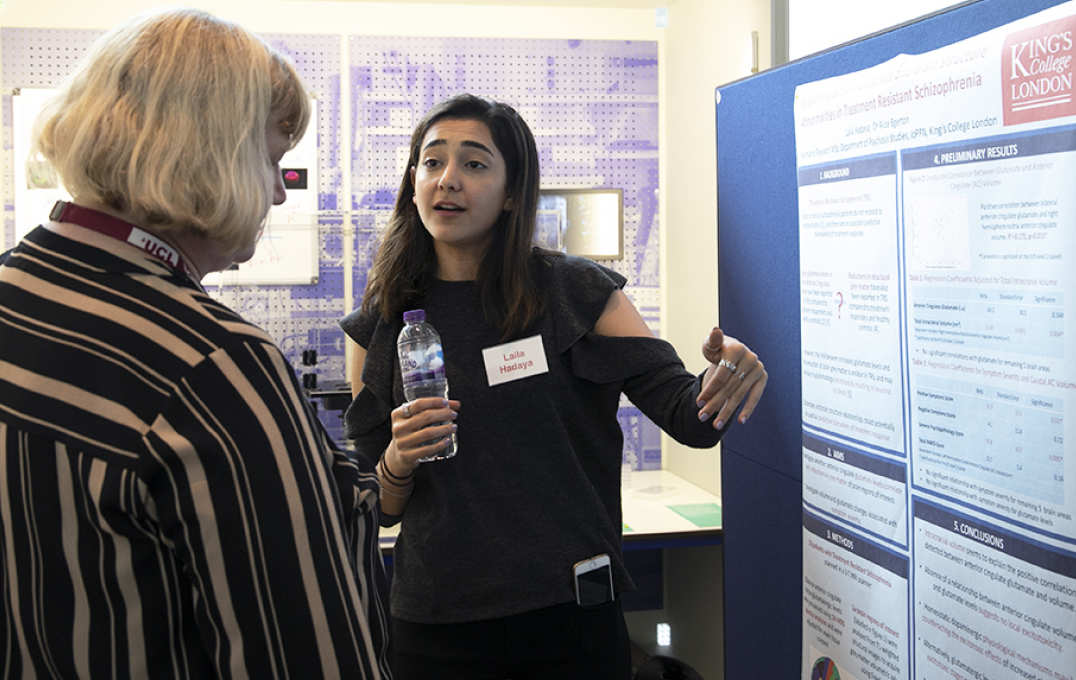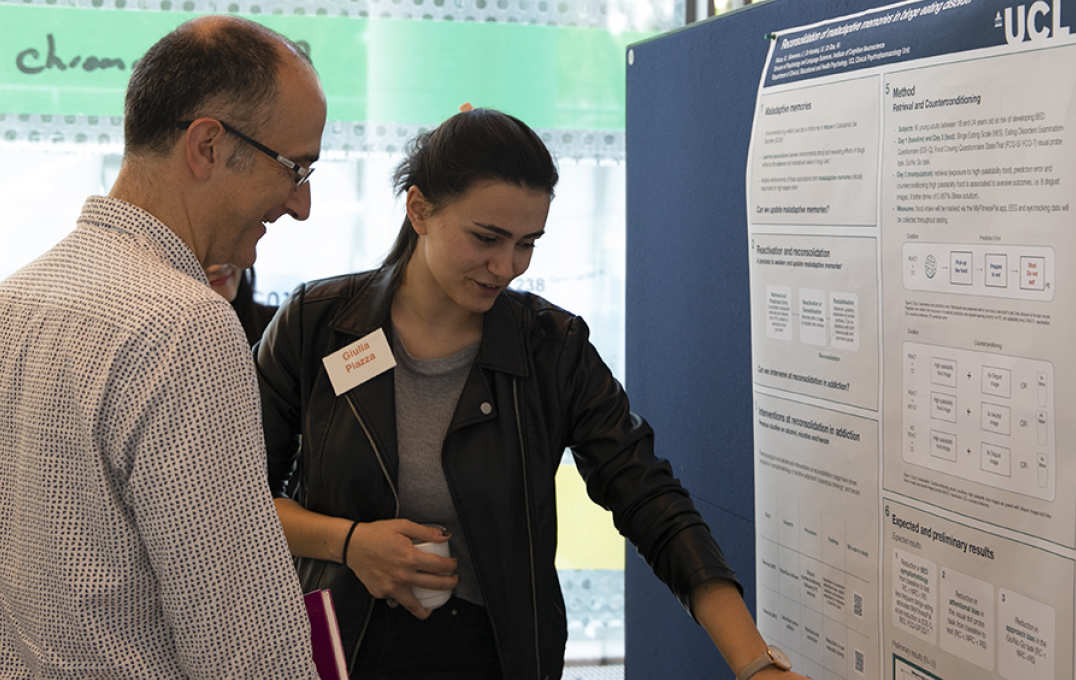Future neuroscientists join forces at Crick Partnership student conference
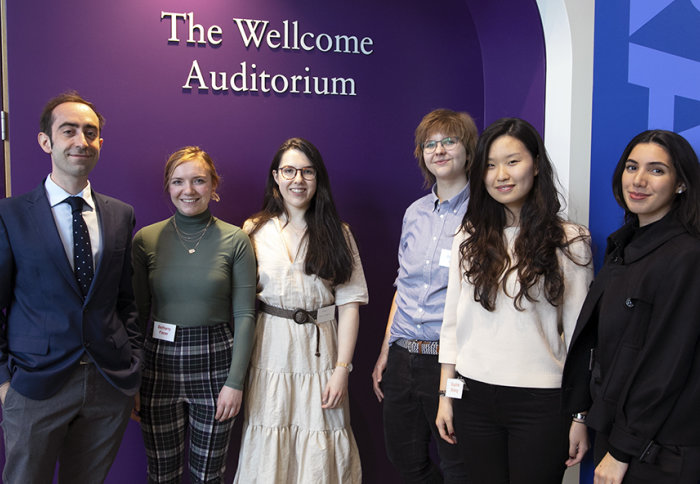
(L-R): Dr Stefano Sandrone and conference presenters Bethany Facer, Garazi Araña Oiarbide, Joanna Kuc, Fei Sophie Shang and Leen Hashem.
Master's students from Imperial, KCL and UCL gathered at the Francis Crick Institute last week for the inaugural Future of Neuroscience conference.
60 scholars from the Crick’s founding university partners - Imperial College London, King's College London (KCL) and University College London (UCL) - attended the event. It provided a unique opportunity for neuroscience Master’s students to present their work and network with peers, who collectively represented ten MSc/MRes programmes.
The conference was organised by Dr Stefano Sandrone, Teaching Fellow for Imperial’s MSc Translational Neuroscience programme, and was supported by the Crick’s Partnership Networking Fund. The fund aims to encourage collaborations between the Crick and its university partners and to bring scientists together from the different organisations to develop new collaborations across disciplinary boundaries.
Speaking at the event, Dr Sandrone commented: “We’re incredibly grateful to the Partnership Networking Fund for enabling us to host this conference. It is really important for us to continue fostering our close relationship with the Crick and our fellow university partners, particularly when it comes to supporting the next generation of scientists. Our students are a treasure and we need to ensure that we pass on our passion for neuroscience to them.”
He added: “It’s likely that this is the first research conference that these students will attend, and therefore it gives them valuable experience in learning how to present their work to peers and colleagues.”
As it happened
Following an official welcome from Dr Sandrone, the conference commenced with a short talk from Professor Paolo Muraro who shared advice with students on the essential skills and practices that could benefit their future research.
An all-female panel of students then delivered flash presentations of their Master’s research, which covered a wide range of topics within neuroscience:
- ‘Flexible mind, flexible networks’ – Garazi Araña Oiarbide (Imperial College London)
- ‘Structural Changes in Pre-symptomatic & Symptomatic GBA Mutation Carriers’ – Bethany Facer (King's College London)
- 'When should one go? Opportunity cost sensitivity determines free operant action initiation latency' – Fei Sophie Shang (UCL)
- ‘Drug interactions shaping the psychedelic experience: Cannabis modulates the nature of the acute psychedelic experience' – Joanna Kuc (Imperial College London)
- ‘The Visual System and Multiple Sclerosis' – Leen Hashem (UCL)
Following the presentations, students participated in a series of interactive poster presentation sessions, in which they showcased and discussed their work with peers and staff. Students with the most effective posters were also presented with awards for their efforts by a panel of judges comprising representatives from each of the participating universities, with the top prize going to Imperial student Tania Velez Perez.
The student perspective
Commenting on the event, Imperial student Joanna Songa said: “As a student, you often hear about conferences taking place, but you don’t really know what goes on behind-the-scenes. Being involved in these kinds of events early on in your academic career prepares you for the future and helps you to learn about presenting and articulating your work in a concise way.”
“It’s also motivating to see that you’re not alone – a lot of the time you’re so focused on your particular area of research that you’re not aware of what other people are working on elsewhere. It’s really inspiring to be able to talk to your peers and exchange ideas, especially if – like me – you’re working in an area which is relatively niche.”
Fellow Imperial attendee Danielle Kurtin added: “This conference has been great for a number of reasons. Firstly, we get to practice sharing the results of our research and talking to a range of people about them. The ability to convey your findings in a quick and accessible manner is really important, in terms of both highlighting your work to a wider audience and the propagation of your ideas.”
“Secondly, there’s currently no other conference like this one, which is designed exclusively for neuroscience Master’s students. It’s been really great to meet students from other universities and to not only see the calibre of their research but to also potentially pave the way for new collaborations between our universities in the future.”
Further information about applying to the Crick Partnership Networking Fund can be found online via the Francis Crick Institute and Imperial College London.
Find out more about Imperial’s postgraduate programmes in Translational Neuroscience (MSc) and Experimental Neuroscience (MRes)
Article text (excluding photos or graphics) © Imperial College London.
Photos and graphics subject to third party copyright used with permission or © Imperial College London.
Reporter
Ms Genevieve Timmins
Academic Services
